Game Mechanics: How to Create Tension in Your Game
This is the first in a series of articles where we look at board game mechanics. This article will be focused on how to create tension in your game through a variety of interesting methods.
But why would you want to create tension in your game? Aren’t games supposed to be fun? Maybe even relaxing?
Well, that’s really up to you as the game designer. Games can evoke many emotions and responses, well beyond just “having fun.” In fact, there are some games that you would rarely or never say you had fun playing, but what they did do was deliver an experience.
The goal of a game should be to provide a specific experience and it is the game designer’s job to bring out that experience that they’ve envisioned for the game as best as they can.
So, let’s look at how to create a very strong feeling of tension in a game, including some great examples of how this has been accomplished in some already published games.
Real-time Game Mechanics
What better way to keep up a fast pace and build tension than to create a game where players have to complete their actions in real-time?
Rather than providing as much time as they need to complete their actions and contemplate their next moves during other players turns, some games keep the action going throughout the whole game by forcing players to make quick decisions and continuing moving at a fast pace.
Quite often a timer is used to create a sense of urgency, tension, and in some cases, panic. This could be a sand timer, digital timer, soundtrack, or another device that keeps the pressure on the players.
Simultaneous play is also often featured in games with high levels of tension. Whether competitive or co-operative, having all players taking their turns at the same time creates even more pressure, as well as higher interaction and little to no downtime (which is always a good thing!).
One of the often-used game mechanics for real-time games is dice-rolling. You can see this in games like Fuse and Escape: Curse of the Temple. You must roll and re-roll dice quickly to create specific combinations to advance, otherwise, you will lose the game.
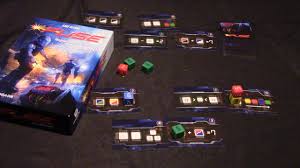
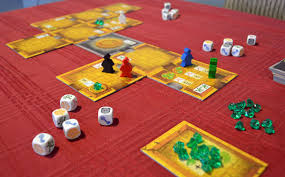
Other games make use of rapid card-play like in Dutch Blitz, or writing down as many solutions as you can, as in Boggle, or completing a puzzle faster than other players in a game like Ubongo.
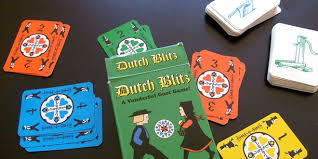
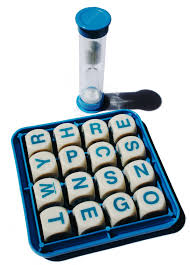
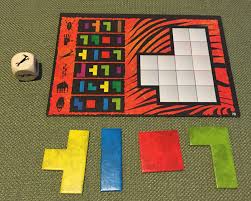
You can even come up with something crazy like giving all players the ability to move all characters, but only in specific directions, as done in Magic Maze.
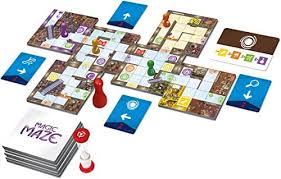
When designing our game, 14 Frantic Minutes, I wanted to add a similar kind of tension to the games above. We started with dice but then this later evolved in to a puzzly connect-the-circuit game, complete with a heart-racing soundtrack and an evil scientist chasing you down!
As you can see, using real-time game mechanics can easily create a feeling of tension among all players.
However, this is not the only way to create a tension-filled experience.
Other Ways to Create Tension
You can also create tension by giving your players difficult challenges to overcome and throwing obstacles at them throughout the game.
This is often seen in co-operative games. Most really good co-op games involve carefully creating a balancing act for players where they must constantly choose between taking actions that will bring them closer to victory and performing tasks that will prevent their defeat.
Focusing completely on one while ignoring the other will lead to peril.
This is pulled off really well in games like Pandemic. The goal is to cure all 4 diseases in order to win the game. However, the diseases are always spreading all over the world, and if you don’t deal with them, they will lead to outbreaks, which will push you to the brink of losing quickly.
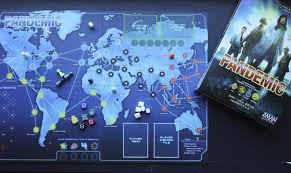
The deck of cards in Pandemic also acts as a timer. While not giving you the exact same pressure as a sand timer running in real-time, players can see when the deck is getting low, and a sense of urgency comes over them, as revealing the last card will also lead to defeat.
There is a nearly constant tension in the game, as players must make tough decisions, never having enough actions to do everything they really want to accomplish. This action point system is another great game mechanic that helps build up the tension.
You can see the use of action points and multiple ways to lose used in many co-op games, including Forbidden Island, Forbidden Desert, Forbidden Sky, and Flashpoint: Fire Rescue (all of which are in my game collection!).
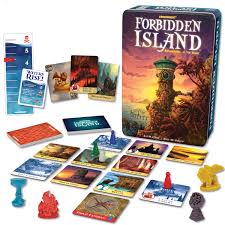
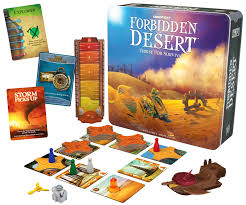
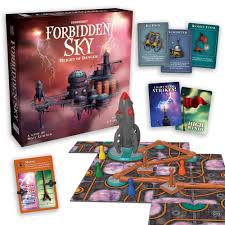
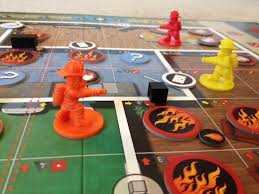
But tension can come from other places as well. It could be the tension of playing the right cards and trying to win a battle in Magic: The Gathering, or competing to be the first to accomplish a goal and earn a prize, done in so many games, from Ticket to Ride to Century: Spice Road.
These are just some of the ways to create tension in your game. Next week we’ll look at the game mechanics behind great push your luck games.
What other games have you seen that create tension memorably? How did they accomplish this?
Please leave a comment and share your thoughts.

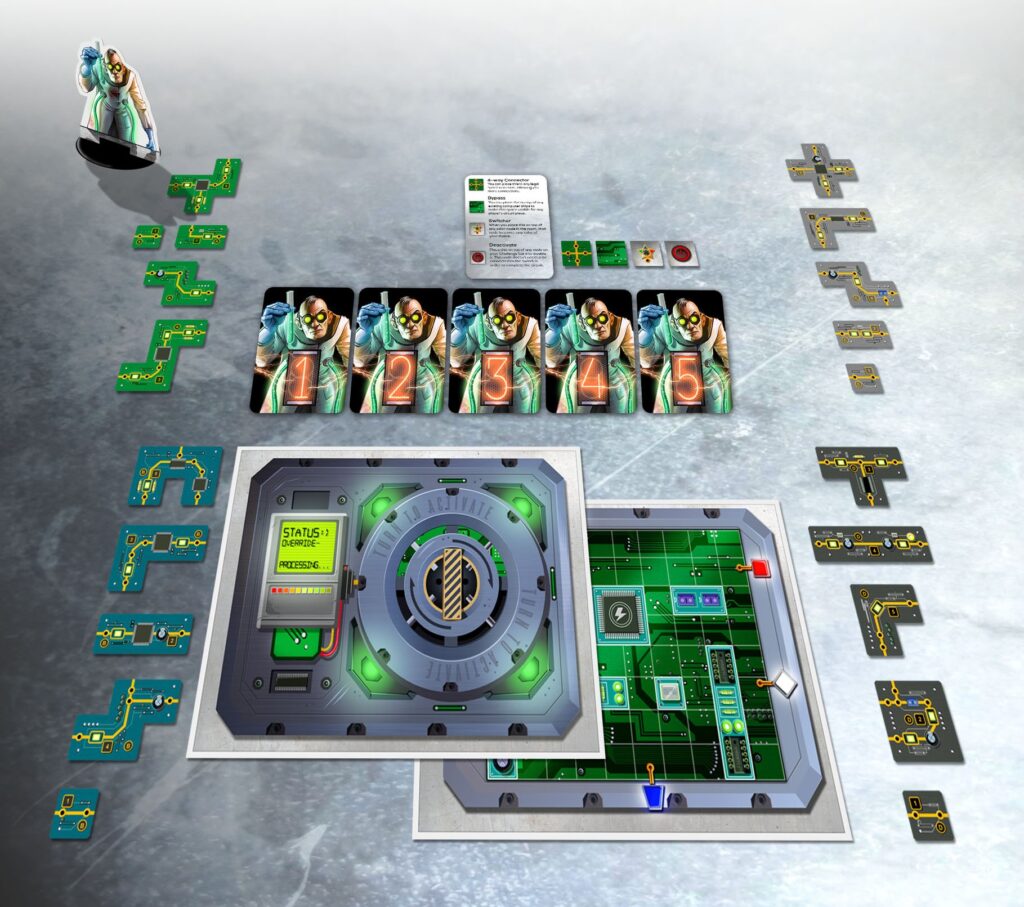
20 comments
Charles D. Moisant
Thank you for your insight.
Chris Stone
Nice discussion, Joe! I think a tight thematic integration can also add to the tension in a game. For example, in Nemesis every time you move you make “noise” that is likely to bring terrifying and deadly aliens to your location, unless you move carefully which costs more of your precious actions. This is a simple mechanic that really captures the feel, emotion, and TENSION of being stuck in an alien horror movie!
Joe Slack
Great point, Chris! I’ve heard the same thing about Nemesis. This is also exactly the same feeling we’re trying to implement in a real-time chase and escape game I’m working on with a co-designer.
Chris Stone
This sounds awesome! Can’t wait to learn more, Joe!
Bill Murphy
Raptor has great tension as you play cards to take special actions. You have to think carefully because you give your opponent base action points if the card they play simultaneously has a higher number than your card. The lower number gets the special action and the higher number gets the difference in base action points. So tense. You may not get your special action but you could get a lot of base action points if you play your cards properly, knowing your opponent and trying to keep track of their options.
I also find Blood Bowl from Games Workshop to be tense. Most things done in Blood Bowl have to succeed. If you fail an action your turn ends. This makes you analyze and priorities your actions completing the most important things first. Every team member (figure) can take an action if their buddies do not fail. Every action has a chance of ending your turn. Great for this miniatures fantasy-themed sports game.
We are trying to create tension in From The Mist, a Fantasy battle game we are creating. Variable turn ending. The tension builds as the turns progress with more chance of an end as it builds slowly and then faster and faster with game progress. Also tension with how many actions you take. The less you take the cheaper actions cost. Do you pass after a few actions to let your opponent go, making your actions cheaper next turn, or spend them all to accomplish your task now?
Great discussion.
Joe Slack
Thanks for your comment, Bill!
Raptor is on my list of games I’d like to try. It looks like an interesting asymmetrical 2-player game.
One day I’m sure I’ll have the chance to play From the Mist! That’s great that you’re thinking about how to build tension in your game through the interesting decisions players are forced to make.
Duane Wulf
A game with fun tension is Clank. Am I going to make it out before I die?!
For me, a lot of tension in games comes from wondering if other players are going to take something that I want before I get a chance to get it. Castles of Burgundy: Will they take that tile before I can get it? Agricola: Will they take that worker placement spot before I get it? Terraforming Mars puts tension into the game because of the Milestones and the bonus spots at certain points on the Temperature and Oxygen tracks (Will someone get that before me?) Concordia and other games with Dutch-auction card buying rows: Will someone buy that card before me? In these cases, the other players are the clock, but you are not sure of when time will run out.
Joe Slack
Yes! Clank is another good example. Can you get all the loot you went in for? Then can you get back out before it’s too late?
Lots of other great examples here as well, Duane. Thanks for sharing!
Mitchell Allen
Smashup creates all kinds of tension, not only because of your opponents’ choices, but also because the victory condition (15 VP) is not an absolute. A couple of examples: one, if Madness cards are used; two, if Rhodes Plaza Mall is in play near the end of the game!
The best tension in Smashup is your deck! Did you pick a pair of factions that will let you easily get through the deck? If not, whoo, boy. Good luck waiting for the Boss cards to appear. (And then, good luck hoping the opponents don’t make you discard it!)
Cheers,
Mitch
Joe Slack
I know of but haven’t played Smash Up. It certainly does sound tense, Mitch!
Andrew milne
To me the big tension is created by never knowing when those outbreak cards are going to pop up. 9 times out of 10 you get helpful cards, but you always know disaster is round the corner! I’m not a big fan of the game but same mechanic seems to happen in exploding kittens. I like the idea of the card you’re picking being likely to help you… but might lead to disaster!
Joe Slack
Absolutely, Andrew! Knowing that card is somewhere in the deck coming up but not knowing exactly when definitely creates a lot of tension.
Game Mechanics: How to Make a Compelling Co-op Game – The Board Game Design Course
[…] the first article in this series on game mechanics, we talked about creating tension in your game and I mentioned a few co-op games that do this well. Today’s article will be all about […]
Bill Murphy
Joe’s game King of Indecision is a great example of tension created by the uncertainty of whether the next card you draw will add resources to the board or cause the King to change their mind about which resources they want. I love this game.
The podcast Experience Points has an episode discussing the “follow” mechanic. This mechanic allows players to perform a similar action to the active player’s turn, usually a less powerful version or one gaining fewer resources. I think this is an excellent way to keep players engaged even when it’s not their turn. It also creates tension: you might want to take an action, but hesitate because it could enable others to benefit from it. Do you limit your own moves to deny an advantage to your opponents? The podcast highlights many great games that incorporate this mechanic in unique ways.
Joe Slack
Thanks for the shoutout to King of Indecision, Bill!
Earth is a great example of the “follow” mechanic you mentioned. You take an action, then all other players get to take a smaller action, and all players activate specific cards.
Thanks so much for the great comment!
Bill Murphy
The King of Indecision is in my favorites collection. I’ll try to get some games in this holiday season with friends and family. It is not a complicated game, but it is elegant in its mechanics and tension.
Christopher Burdiss
I’ve played Pandemic myself and seen how anxious you can get when that pile of cards gets low and you have any possible chance of there being an outbreak of disease and losing at any possible moment. I’ve wanted to make some tension like this in D&D too, where there is a hidden timer inside a dungeon, and you have to escape before the cavern falls in on itself, I haven’t gotten to be able to run it yet, but I want to see how it goes.
Joe Slack
I hope a system like this helps build the tension you’re looking for, Christopher!
Christopher Burdiss
I’ve been trying to create tension in my D&D games and honestly, I’ve been waiting for the right moment. I’ve been trying to create a dungeon where there is a hidden timer, and the players do not know how much time they have until the cavern collapses in on itself. I’m hoping that with some help to think about it like the deck in Pandemic, some indicator that your time is running out, it will be a cool way to run the game!
Joe Slack
I think the key is to give players an idea of how much time they have but not the exact timeframe. Some cards, when revealed, could say reveal an additional card, for example. That way it may seem like there is a bit more time than they think and they might not know their time is even more precious.